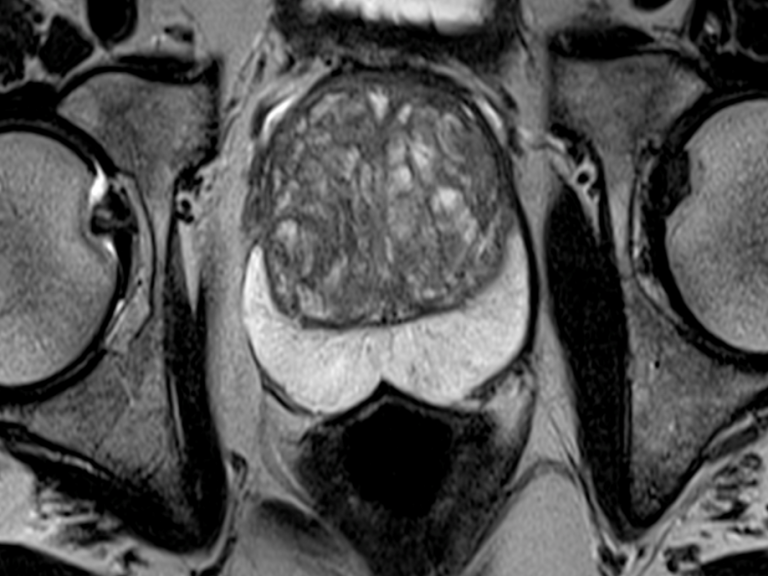Prostate MRI scans increase cancer detection & reduce overdiagnosis
19 March 2018
A large international study led by UCL and UCLH researchers, has found that an MRI scan and targeted prostate biopsies, are significantly better at making a positive prostate cancer diagnosis than standard biopsies.

The PRECISION Trial randomly allocated 500 men with suspected prostate cancer from 23 international centres and found that using MRI to perform prostate biopsies leads to more of the harmful prostate cancers, and fewer harmless cancers being diagnosed, than the standard way of performing biopsies.
Researchers found the MRI approach can also reduce the number of men undergoing biopsy by 28%, as men who do not present with abnormal areas in the prostate may be able to avoid biopsy altogether. This is particularly important as over 1 million men in Europe undergo biopsy every year and biopsies can be uncomfortable, costly, and carry a risk of infection.
Currently men who have suspected prostate cancer, typically undergo a standard biopsy test called a TRUS (TRansrectal UltraSound guided prostate biopsy), which requires a doctor to pass an ultrasound probe into the back passage and takes a sample of cells from the prostate that might contain cancer, however TRUS biopsy has been known to have limitations and can miss harmful cancers and diagnose harmless cancers that don't need identifying.
Dr Veeru Kasivisvanathan, from the UCL Surgery & Interventional Science, funded by a National Institute for Health Research (NIHR) Doctoral Fellowship, presented the results of the PRECISION Trial at the 33rd European Association of Urology Congress, Copenhagen, with simultaneous publication in the New England Journal of Medicine.
Dr Veeru Kasivisvanathan, the first author of the study, said: "PRECISION is the first international multi-centre randomised trial to show the benefits of using MRI at the start of the prostate cancer diagnosis process.
"In men who need to have investigation for prostate cancer for the first time, PRECISION shows that using an MRI to identify suspected cancer in the prostate and performing a prostate biopsy targeted to the MRI information, leads to more cancers being diagnosed than the standard way that we have been performing prostate biopsy for the last 25 years."
Dr Caroline Moore, Reader in Urology at UCL and senior author of the study commented:
"We compared standard prostate biopsy to the use of MRI, offering targeted biopsies to only those men who had a suspicious MRI.
"The MRI pathway detected more harmful cancers that needed treatment, and it reduced overdiagnosis of harmless cancers, even though fewer men had a biopsy in the MRI arm."
Professor Mark Emberton, UCL Division of Surgery & Interventional Science, is supported by The NIHR UCLH Biomedical Research Centre
He said: "This study was the first to allow men to avoid a biopsy. If high quality MRI can be achieved across Europe, then over a quarter of the one million men who currently undergo a biopsy could safely avoid it."
The PRECISION trial was funded by the NIHR and the European Association of Urology (EAU) Research Foundation.
Links
Image
UCL PRECISION trial
Media Relations
Henry Killworth
+44 2076795296
 Close
Close

